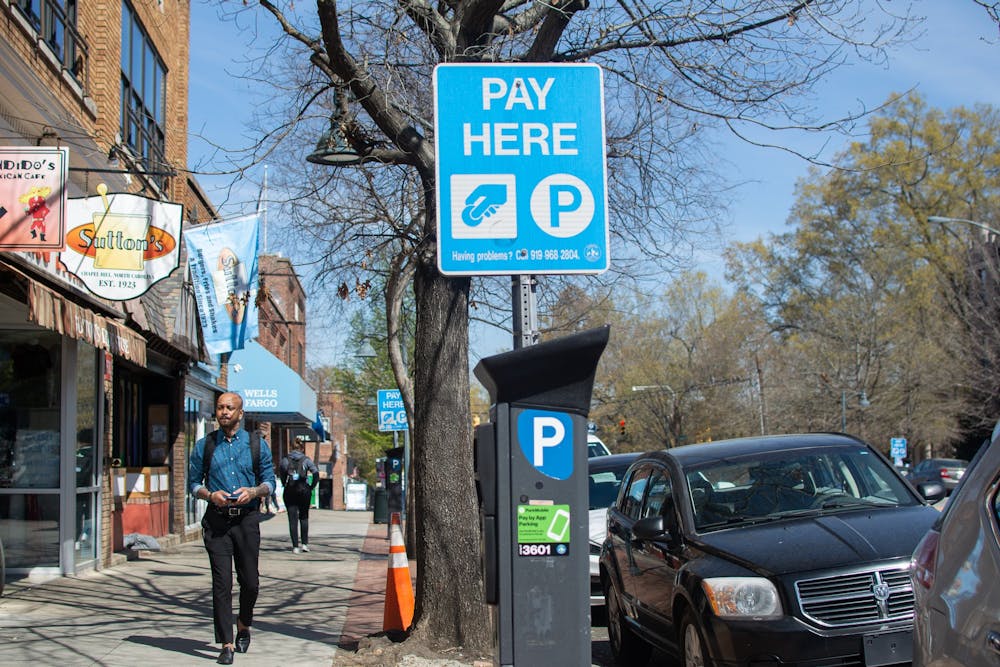Carrboro does not have a department that mirrors Chapel Hill’s Parking Services. The public parking lots are administered by the town's planning and economic development departments.
“We need parking because we want people to come downtown, visit our businesses and shop and participate in the local economy,” Hartman-Brown said.
The Carrboro Town Council is currently discussing the future of parking and whether further parking enforcement or the establishment of parking fines would benefit the Town.
Byars — who chooses to bike downtown instead of driving — said charging for parking in Carrboro could help enhance walkability and allow Carrboro residents to optimize the use of the parking lots funded by their tax dollars.
“If we were pricing it appropriately, it might incentivize private parking owners to do something more productive with that space, like building multi-use housing,” he said.
Lance Gloss, the editor-in-chief of the Carolina Planning Journal, said having to pay for parking might also discourage the use of cars if people no longer think they can park for free downtown.
Due to its Complete Community initiative, the Town of Chapel Hill is continuing conversations about planning options for a less car-centric future. The initiative was created by the Town of Chapel Hill to identify how to develop the town in an inclusive and economically-competitive way.
“It's easier to bike and to walk and to use transit in this community than it is in many comparably sized communities nationwide, and that creates some degree of opportunity here to reduce parking requirements,” Gloss said.
In Chapel Hill, charging for parking is less optional than in Carrboro since the Town shares spaces with the University and private entities, according to Bassett.
Chapel Hill is at a disadvantage when it comes to available parking, Bassett said, as the Town owns only 35 percent of parking resources — while in other well-managed downtowns, at least 50 percent of parking is publicly owned.
“No matter how good our policies are, no matter how good our fees are, we are only controlling 35 percent of the available parking,” he said.
Chapel Hill Parking Services’ economic model is an enterprise fund — a business that covers its expenditures and costs with its revenue since the Town does not fund parking through general fund requests. Carrboro's parking fund is sustained by the Town's general fund, according to Hartman-Brown.
To get the day's news and headlines in your inbox each morning, sign up for our email newsletters.
Gloss said conversations around parking often fall at the intersection of economics, equality and disparate access to services.
“This is an emotionally charged conversation, it’s much bigger than cars, and it also fits into budgets for these public entities that are full of competing demands," he said.
@wslivingston_
@DTHCityState | city@dailytarheel.com
Walker LivingstonWalker Livingston is the 2024 enterprise managing editor at The Daily Tar Heel. She has previously served as summer city & state editor and assistant city & state editor. Walker is a sophomore pursuing a double major in journalism and media and American studies, with a minor in data science.




